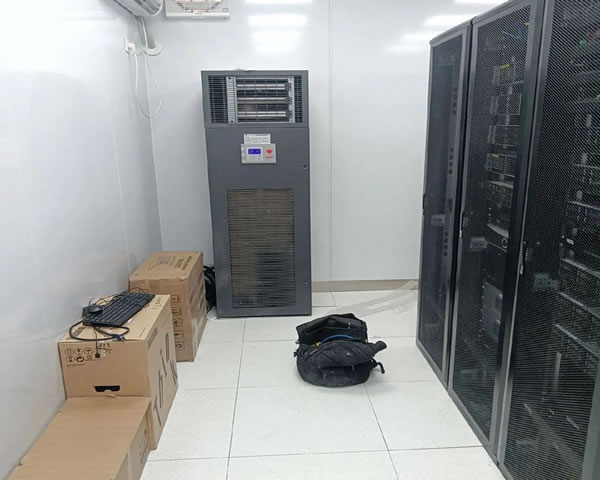cloud servers produced by taiwanese factories are gradually gaining attention in the market. however, faced with many choices, how to evaluate their performance and stability has become the focus of users. this article will explore this issue from multiple angles, including evaluation standards, specific evaluation tools, and actual case analysis, to help users better understand and choose the cloud server that suits them.
evaluating cloud server performance often involves multiple metrics, including computing power, storage speed, and network bandwidth. first of all, computing power can be evaluated by the frequency and number of cores of the cpu. the more cores, the stronger the processing power. secondly, storage speed is usually judged by comparing ssd to hdd. ssd is significantly better than traditional hard disk in reading and writing data. finally, network bandwidth determines how fast data can be transferred, usually measured in mbps.
when evaluating the stability of a cloud server, the most important parameters are availability and failure recovery. availability is usually expressed as a percentage. for example, 99.9% availability means that the system can experience up to about 8.76 hours of downtime per year. in addition, fault recovery capability refers to how quickly the system can resume normal operation when encountering a fault. many cloud servers manufactured in taiwan will provide redundant backup and multi-point failover to improve stability .
there are a variety of online tools that can help users evaluate the performance and stability of cloud servers. for example, the benchmark tool can perform stress testing on servers and provide detailed performance data. at the same time, many professional websites will also publish cloud service evaluation reports, and users can refer to the data and user feedback in these reports. these tools and resources can effectively help users make informed decisions when choosing cloud servers.
there are several reasons for choosing a cloud server manufactured in taiwan. first of all, taiwan has strong strength in technology research and development, and many manufacturers have deep accumulation in hardware and software research and development. secondly, taiwan’s network infrastructure is relatively complete and can provide lower latency services. in addition, taiwanese factories usually strike a good balance between cost and service quality, suitable for the needs of small and medium-sized enterprises.
when performing performance testing, users can use multiple indicators for comprehensive evaluation. first, you can use tools such as geekbench to conduct cpu performance testing to obtain single-core and multi-core performance data. next, test the storage performance by using tools such as iometer to understand the read and write speed and latency. at the same time, use network testing tools such as speedtest to evaluate network bandwidth and latency to fully understand the performance of the cloud server.
when choosing an appropriate cloud service package, users should consider their own needs, including processing power, storage requirements, and budget. generally speaking, start-ups can choose lower configuration packages to reduce costs; while for enterprises that require high-performance computing, they should choose high-configuration cloud servers. in addition, users should also consider the service provider's support services, such as technical support and troubleshooting speed, to ensure that they can receive timely help when they encounter problems.
in the taiwan market, there are multiple manufacturers providing cloud server services. among them, some manufacturers are widely praised for their technical strength and service quality. for example, some well-known manufacturers enjoy a good reputation in the industry and provide cloud servers with outstanding performance and stability at relatively reasonable prices. users can refer to industry reviews or user feedback when choosing to choose the manufacturer with the highest price/performance ratio.

evaluating the quality of technical support provided by a service provider can start from many aspects. first, check whether the service provider provides 24/7 technical support services to ensure that you can get help at any time. second, research the service provider's support channels, such as phone, online chat or email support response times and resolution efficiency. in addition, users can learn about the feedback of other users through online forums and communities to determine whether the service provider's technical support is reliable.
there are many channels for obtaining user feedback. users can visit specialized evaluation websites, such as hostingadvice , to view other users' evaluations of cloud services. in addition, social media platforms and technology forums are also good places to obtain user feedback. users can learn about the real reviews of different service providers through these channels, so as to make more informed choices.
when using cloud servers, potential risks mainly include data security risks and service interruption risks. to deal with these risks, users should regularly back up important data to ensure quick recovery in the event of data loss. at the same time, choose a reputable service provider and ensure that it has complete security measures, such as firewalls and data encryption. in addition, users should also understand the terms in the service agreement to ensure that they can receive due compensation when they encounter problems.
routine maintenance of cloud servers includes regular software updates, monitoring performance indicators and security checks. first, regularly update the operating system and applications to ensure system security and stability. secondly, use monitoring tools to track performance indicators in real time and identify potential problems in a timely manner. in addition, conduct regular security checks to ensure firewall settings are correct to prevent data leakage. during the maintenance process, the maintenance time should be reasonably arranged to minimize the impact on the business.
- Latest articles
- Recommend Efficient Korean Website Group Optimization Website Resources
- Do You Know How Much It Costs To Rent A Cloud Server In Singapore?
- Selection Guide And Evaluation Of Korean Cloud Server Platform
- Application Scenarios And Practical Effects Of Cn2 Lines In The United States
- Recommended High-defense Server Room In The United States And Analysis Of Its Advantages
- Several Key Factors To Consider When Choosing Cn2 In Singapore
- Market Demand And Trend Report Of Vietnam’s Native Ip
- Where To Buy Cost-effective Servers In Taiwan
- Where Does Taiwan Vps Provide The Best Service And Support?
- Market Trends And Development Analysis Of Japan’s Cn2 Cloud Services
- Popular tags
-
Five Reasons To Choose Taiwan Vps, Advantages You Can’t Miss
five reasons to choose taiwan vps, understand its advantages and practical steps, so that you will no longer be confused when choosing vps. -
How To Choose A Suitable Taiwan Vps Cloud Server Franchise Plan
this article will guide you on how to choose a suitable taiwan vps cloud server franchise plan, analyze the characteristics and advantages of various servers, and help you make wise decisions. -
User Experience Using Taiwan Server Vps In Changchun Area
this article explores the experience of users in changchun using taiwan server vps, including performance, stability and recommended providers.


